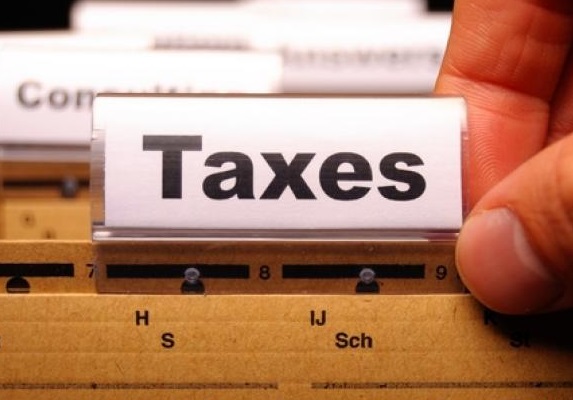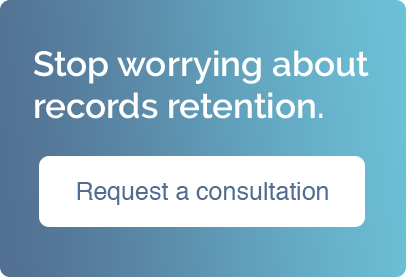Record Retention Schedule for Tax Records

With tax season upon us, many small business and self-employed individuals have questions regarding how long they need to keep and maintain tax documents as part of their record retention schedule. The length of time that you will be required to keep documents will be dependent upon the action, expense, or event in which the document is recording. As a general rule of thumb, you should keep any records that support an item of income, deduction, or credit that is shown on your tax return, until the period of limitations for that tax return runs out.
The period of limitations is defined as the period of time in which you can amend your tax return in order to claim a credit or refund. During this period, the IRS can assess additional taxes as necessary. Here we will discuss the various periods of limitations that apply specifically to income tax returns.
Periods of Limitations that Apply to Income Tax Returns
These guidelines are intended to give you a general idea of how long to keep records following filing your income tax return.
- If you file for a claim, tax credit, or return, it is advised that you keep all pertaining records for an additional three years from the date that you filed your original return, or for two years from the date that you paid the associated tax, whichever is later.
- If you file a claim for a loss from worthless securities or a bad debt deduction, you’ll want to keep the corresponding records for seven years.
- If you do not report income that you should have reported and it is more than 25 percent of the gross income that you show on your return, you’ll need to keep those records for six years.
- If you do not file a tax return at all, you’ll need to keep your records indefinitely.
- If you file a fraudulent tax return, keep all documents indefinitely.
- All employment tax records need to be kept for at least four years following the date the tax was due or paid, whichever is later.
Are the Records Connected to Property?
As a general rule, keep all records that relate to a property until the period of limitations expire for the year in which you dispose of the property. These documents will be used to figure any depreciation, amortization or depletion deduction, and to determine the total gain or loss you accrued when you sold or disposed of the property.
In the event that you receive new property in a nontaxable exchange, your basis in the new property is the same as the basis of the property in which you disposed of, increased by any money that you might have paid. Therefore, you’ll need to keep all records for both the old and new property, until the period of limitations expires for the year in which you dispose of the new property.
There are many different guidelines that need to be followed when it comes to keeping a records retention schedule for tax documents. If you have any questions about how long you need to keep specific documents, consult with your attorney or accountant as they will be best able to direct you. For new businesses who are looking to establish a retention schedule, contact Information Requirements Clearinghouse to get started.

